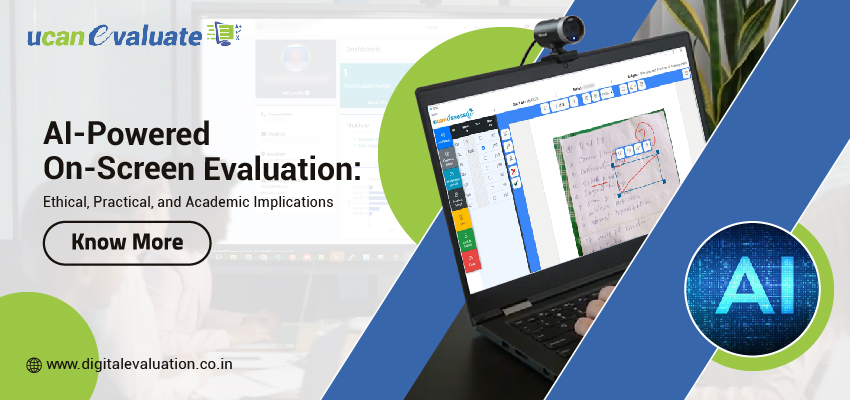In recent years, the rise of AI-powered on-screen evaluation systems has revolutionized academic assessments, offering unprecedented accuracy, efficiency, and scalability. These systems use advanced algorithms and machine learning to evaluate answer sheets, eliminating traditional human error and providing faster results. However, as educational institutions increasingly adopt AI-driven assessment tools, it is essential to examine the ethical, practical, and academic implications of such technology.
Ethical Implications of AI in On-Screen Evaluation 
AI systems, while highly efficient, introduce a range of ethical concerns. One of the primary issues is the potential for algorithmic bias. If the AI models are trained on biased data sets, the system may inadvertently favor certain demographics, undermining fairness in assessment. Moreover, the decision-making process of AI is often opaque, creating a “black-box” scenario where stakeholders—students, educators, and administrators—are unaware of how scores are derived. To ensure the ethical application of AI in education, transparency, accountability, and continuous auditing of algorithms are crucial to avoid discrimination and uphold equity.
Practical Considerations in Implementing AI Evaluation Systems
From a practical perspective, the integration of AI in on-screen evaluation systems offers several advantages, such as reduced grading time, improved accuracy, and the ability to handle large-scale assessments. However, institutions must overcome significant hurdles to implement these systems. Data privacy is a critical concern, as student information needs to be protected from cyber threats. Additionally, the infrastructure required for AI-driven evaluation is often costly, and institutions must be prepared to invest in both hardware and software. Finally, educators must receive adequate training to adapt to these technologies, ensuring they can leverage the systems effectively without compromising their academic integrity.
Academic Implications of AI-Powered Evaluation
AI-powered on-screen evaluation also brings forth several academic implications. It allows for a more personalized assessment experience, providing detailed feedback to students, which can enhance learning outcomes. Furthermore, AI facilitates the evaluation of subjective answers—such as essays—by employing natural language processing to gauge nuances in language, context, and content. However, the shift to digital evaluation raises concerns about the diminishing role of educators in the assessment process. Teachers, traditionally responsible for assessing student knowledge and providing feedback, may feel sidelined as AI takes a more central role.
In conclusion, AI-powered on-screen evaluation offers immense potential to modernize academic assessment, but it requires careful consideration of its ethical, practical, and academic implications. By addressing these challenges head-on, educational institutions can harness the power of AI to create fair, efficient, and transformative assessment systems that align with the needs of both students and educators.



